Between "Anachnu" and "Yossele the Holy Miser": Matan Tzur on Stage
Matan Tzur, a member of the comedy group "Anachnu," which finds the humorous side of life in the religious sector—from matchmaking and Shabbat to livelihood and acceptance committees—dives into new waters, joining the Chanukah play "Yossele the Holy Miser" alongside Oded Menashe and Yaakov Cohen. How do they laugh about the world while keeping within the bounds of halacha? And how is it to participate in a Chanukah play of a different kind?
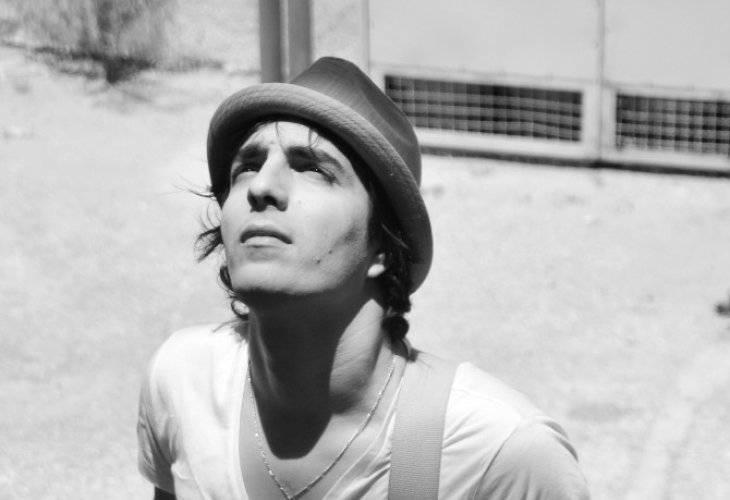
Since he can remember, Matan Tzur knew that what he wanted to do in life was to make people happy. He discovered his unique talent for doing this while studying at the Hesder Yeshiva in Kiryat Shmona. "We used to perform in semi-didactic, semi-comical plays, and we always had lots of good ideas from 'life'—on what to talk about and how to touch people's hearts," recalls Tzur, 27, married and a father of two from Lod. "Around the same time, I discovered I was good at making people laugh, and from there, my dream developed—to produce a sketch show suited to the religious community.
So when Nadav Neveh took the initiative and approached me with the idea of producing professional sketches for a religious audience, and at the same time, Yair brought Asher, whom he knew from the army—our aspirations connected, and we set off with Anachnu." The result? In just four years, the four members of "Anachnu"—Nadav Neveh, Yair Yaakobi, Matan Tzur, and Asher Ben Abu—managed to meet professional standards and win the public's admiration.
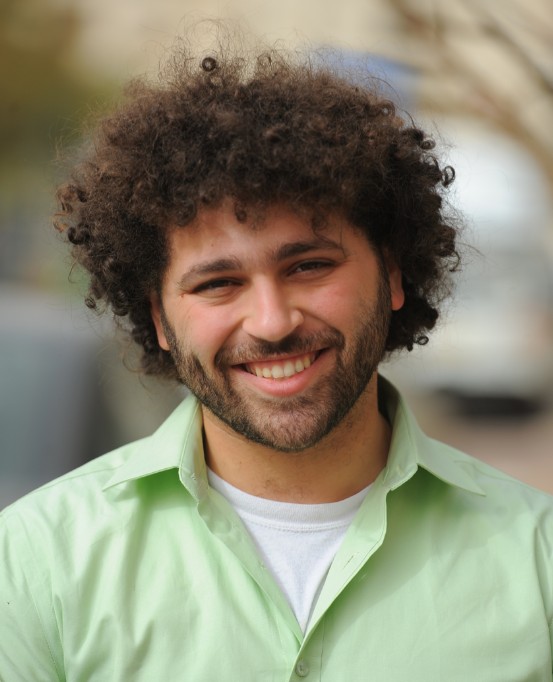 Matan Tzur (Photo: Reuven Castro)
Matan Tzur (Photo: Reuven Castro)And how did those close to you react to this endeavor?
(Smiles) "The truth is that people were quite skeptical at first and didn't really believe there was room for this kind of comedy. But it didn't matter much to us because we were very determined and believed it would succeed. It's true that there are religious and charedi stand-up comedians, but full-fledged sketches were relatively new, and so we understood the difficulty people had in 'digesting' them."
Each of them draws inspiration for writing the sketches from various directions and sources. The topics they discuss concern observant people everywhere: matchmaking, Shabbat, sources of livelihood, acceptance committees to a religious community, and more—these are just a tiny fraction of those topics.
But despite the desire to laugh and rejoice—the boundaries are very clear: do not laugh at people, rather at phenomena. That’s the rule. "The engagement in art, particularly in humor—brings with it many conflicts, so we have very high self-criticism and clear red lines. We don't joke about halacha or about people, and we try not to offend anyone," explains Tzur.
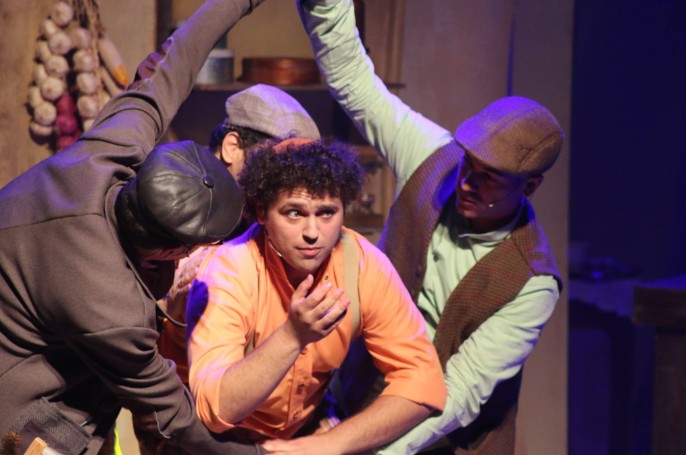 (Photo: Itzik Wolf)
(Photo: Itzik Wolf)When asked what each member is responsible for, Tzur replies, "Everyone is involved in everything, but each one is dominant in something else. Nadav leads the filming and editing, Yair in writing, Asher in writing and music, and I in marketing, as well as assisting with writing and around."
They have over a hundred sketches in their artistic repertoire, and during a live performance (their second one), the four incorporate many parodies and musical segments. However, lately, Tzur began taking part in something completely different from what he has done so far—acting in the children's play 'Yossele the Holy Miser'—in the role of a child, alongside actors Oded Menashe, Yaakov Cohen, Assi Tzobel, and Avishai Shitrit.
When did this shift towards theater start, and how do you feel about your role in the play?
"Recently, Ripps Productions approached me with an offer to participate in a central Chanukah production in the religious sector, based on Rabbi Carlebach’s story 'Yossele the Holy Miser'. It sounded interesting to me, and even though I’d never done anything like this before—I agreed. How’s the feeling? First of all, I’m very happy to have the privilege of working with talented and wonderful people like our acting team, who have a remarkable reputation. Despite the impressive resumés they carry, there’s no ego. The love and praise among us help stay focused and make us want to do the best in our roles.
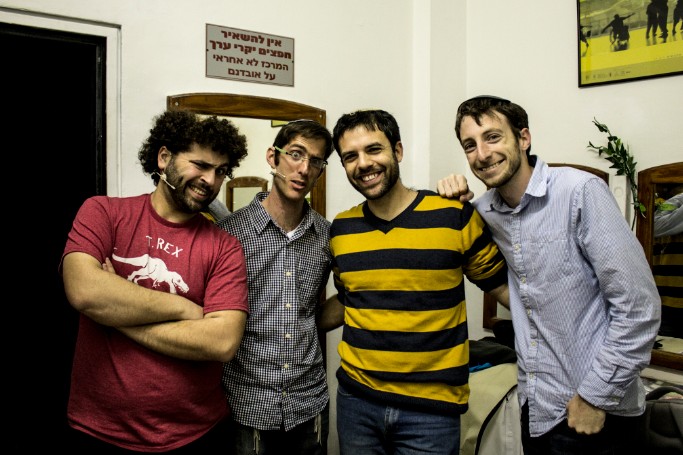 (Photo: Hillel Shalpin)
(Photo: Hillel Shalpin)"The character I portray is a child, the son of the character portrayed by Oded Menashe, who comes from a poor family, one of many in town. One day my father receives a termination notice from the flour mill he works at, and the situation at home becomes unbearable. There is nothing to eat, but I, as a child—dream of a bicycle. Yaakov Cohen plays Yossele, and when we come to ask for his help—he drives us away. The continuation will be—in the play".
So this is a character that is not comedic at all but tragic. How do children connect to that?
"True, it's a more serious and touching character, a child dealing with poverty. In my view, that’s exactly what is beautiful about this play—the ability to tell a tragic story in a way that both children and adults can understand. The ballad is interwoven with emotional and touching songs that create a sense of empathy and excitement in the child, and thank G-d, we receive wonderful feedback on it. I recommend everyone to come and be impressed; it’s a unique and fun experience for both the child and the parent."
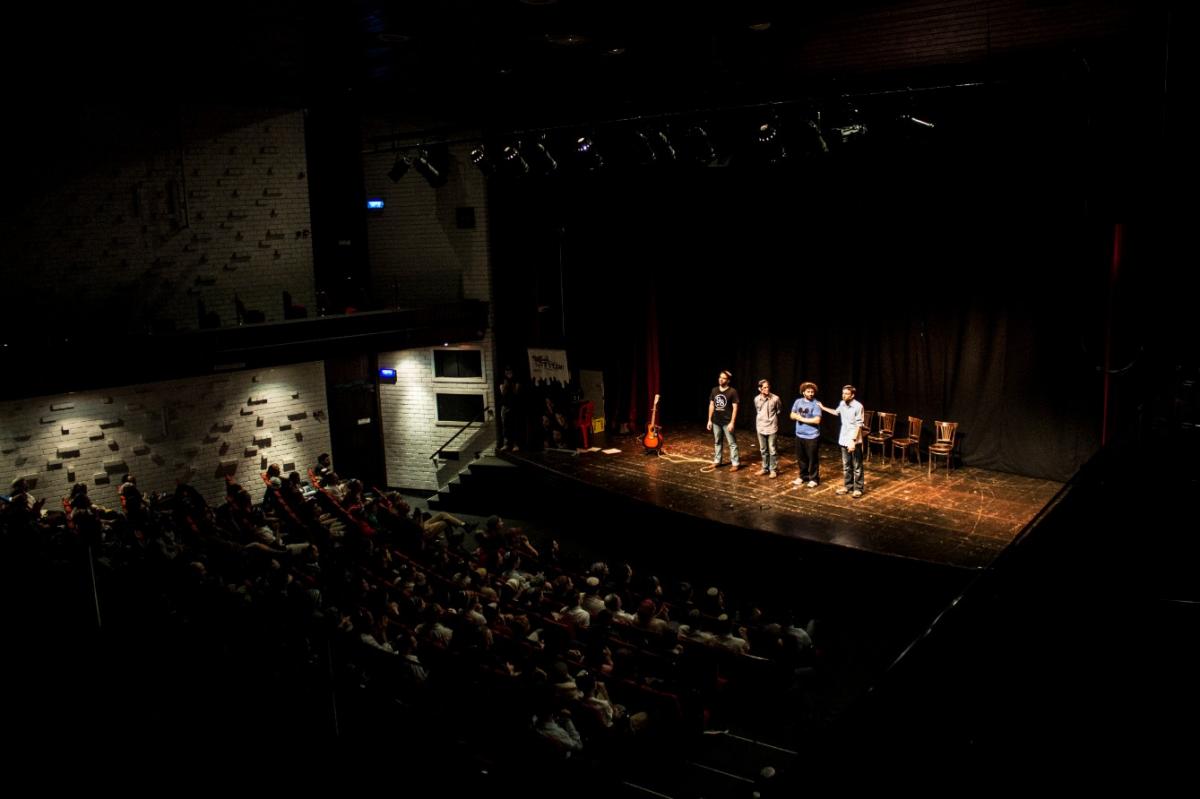 (Photo: Hillel Shalpin)
(Photo: Hillel Shalpin)
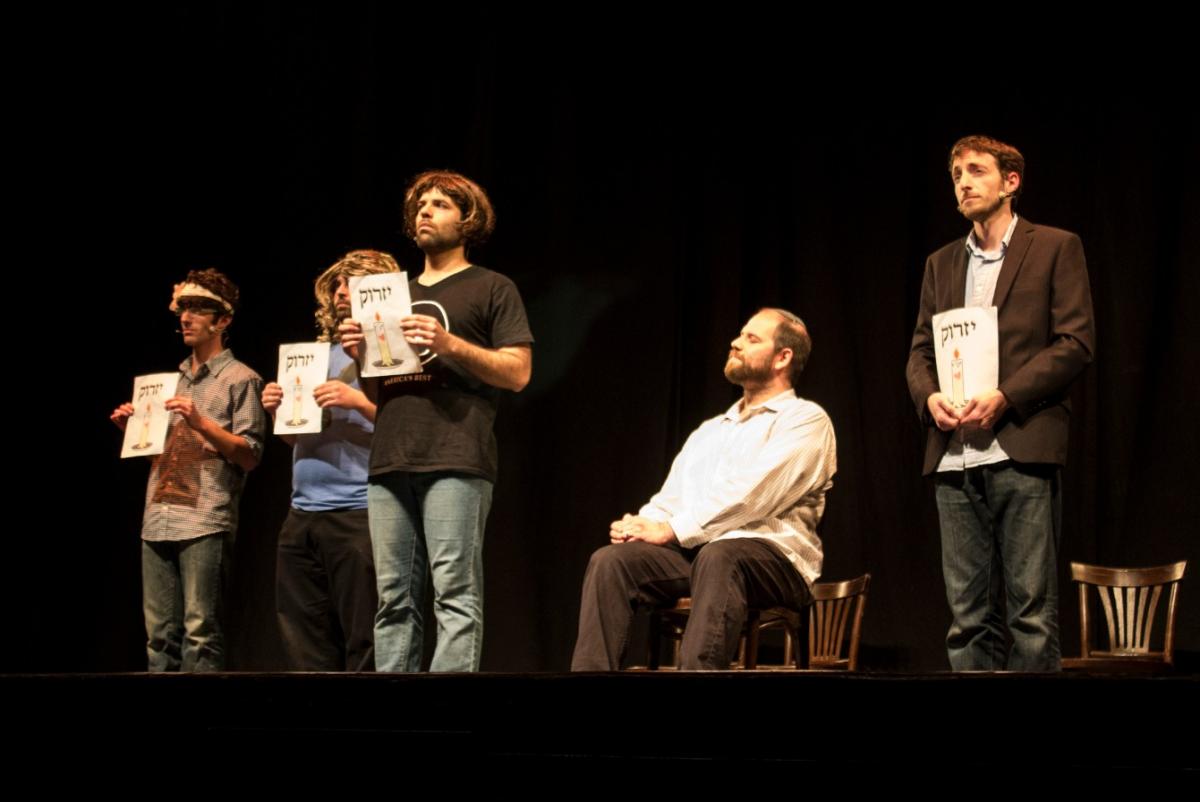 (Photo: Hillel Shalpin)
(Photo: Hillel Shalpin)
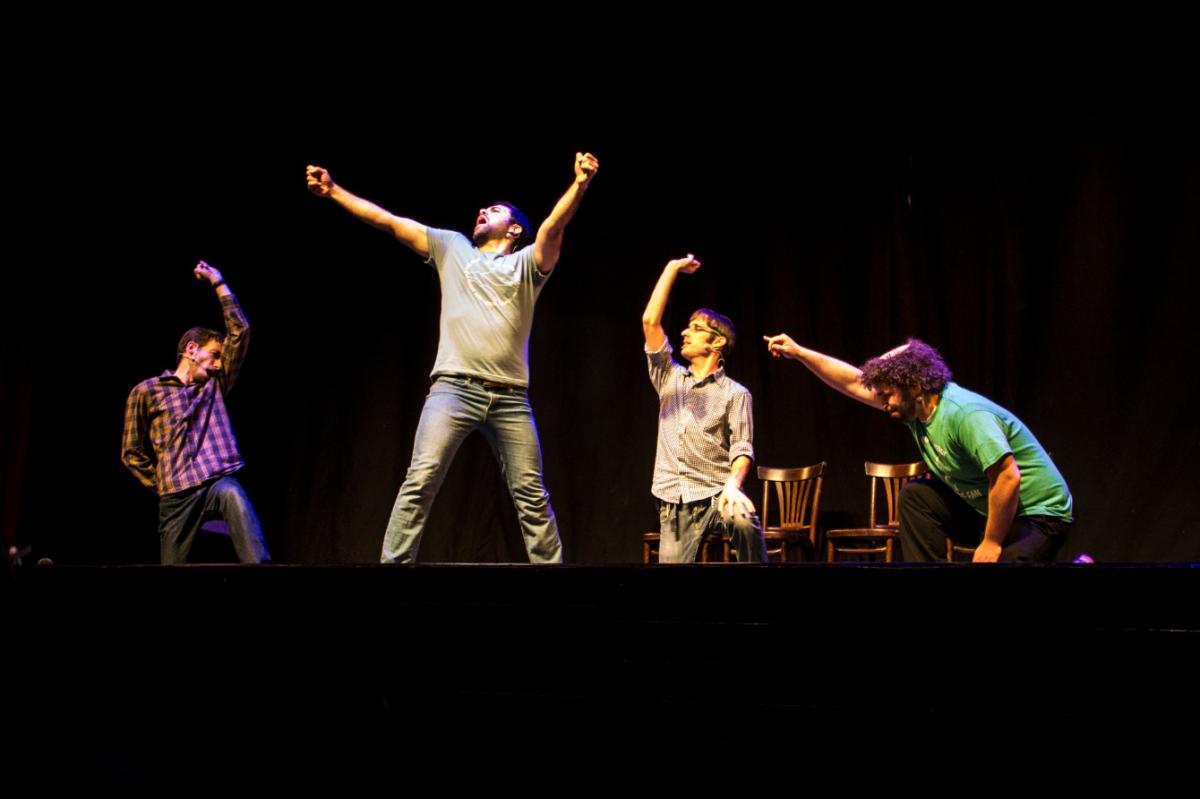 (Photo: Hillel Shalpin)
(Photo: Hillel Shalpin)
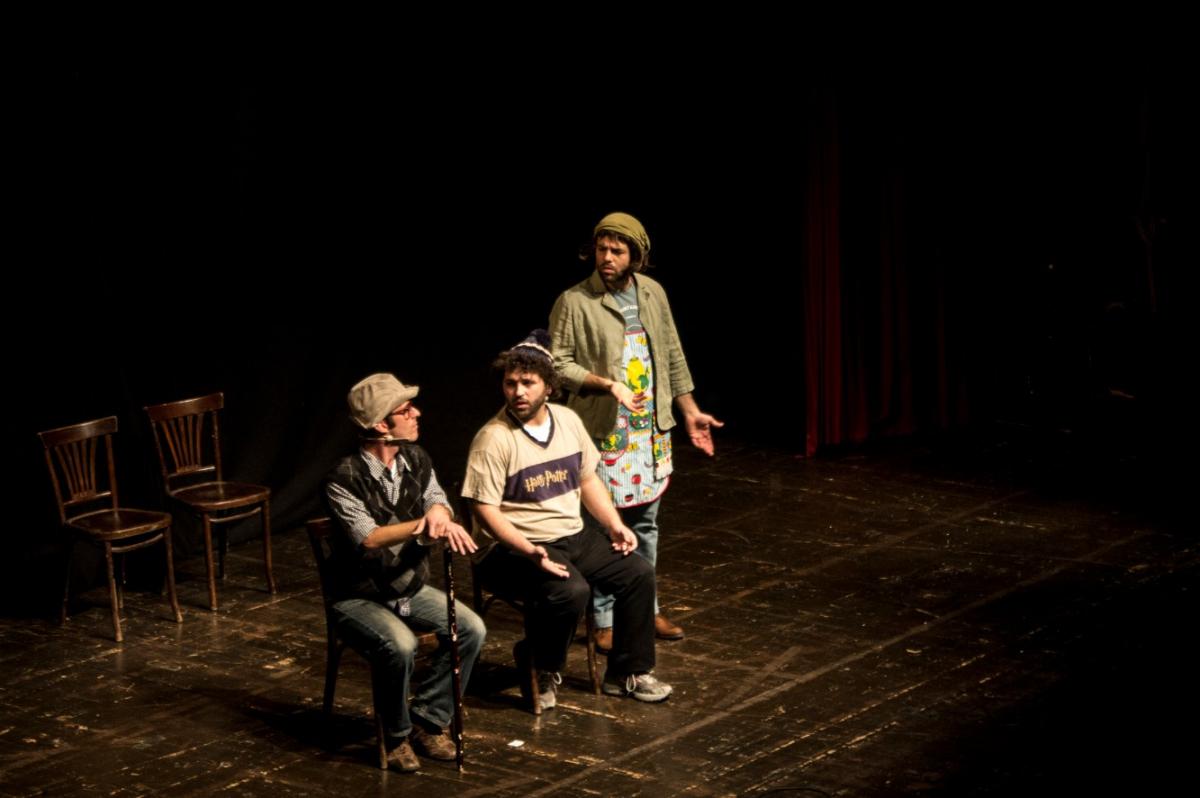 (Photo: Hillel Shalpin)
(Photo: Hillel Shalpin)
